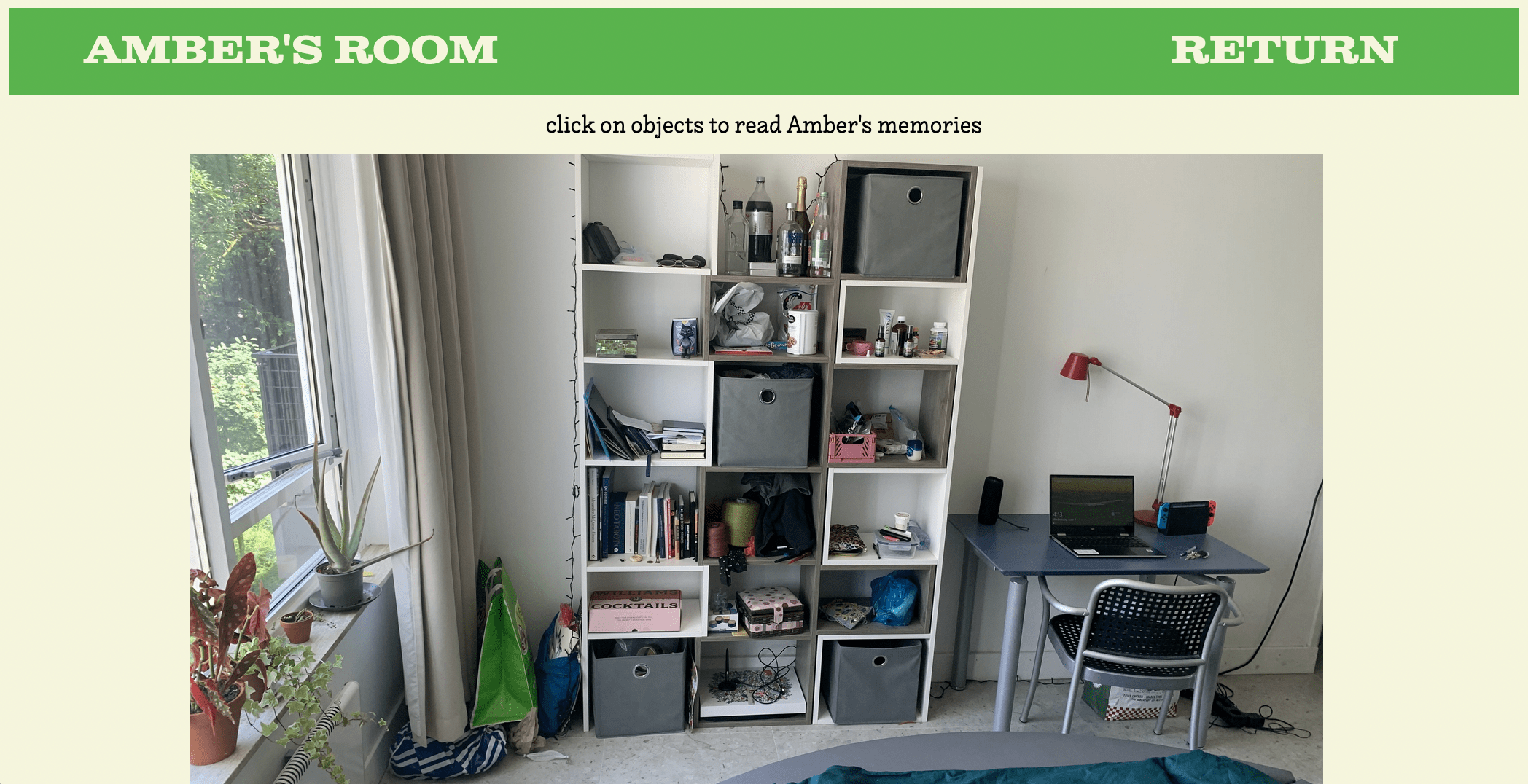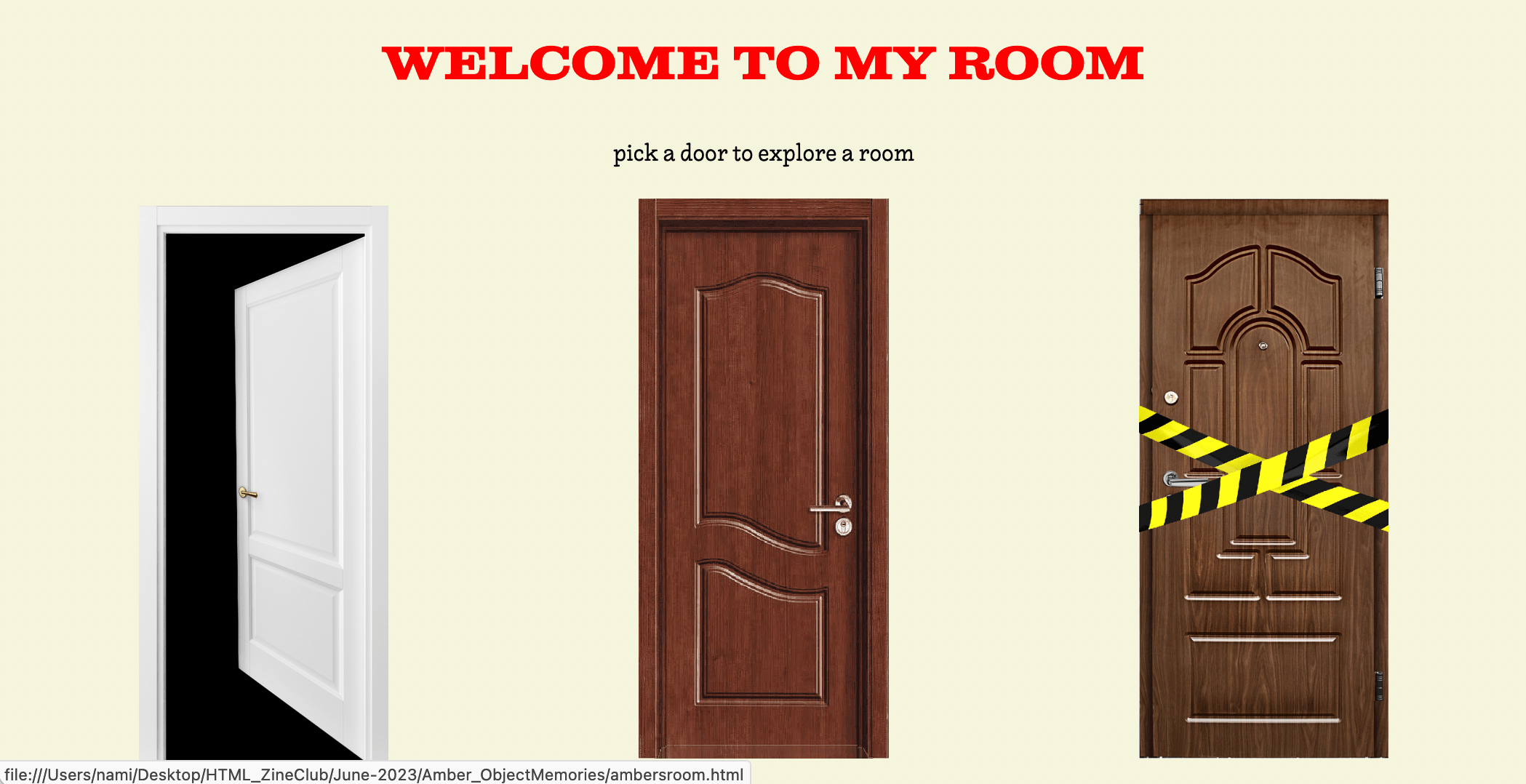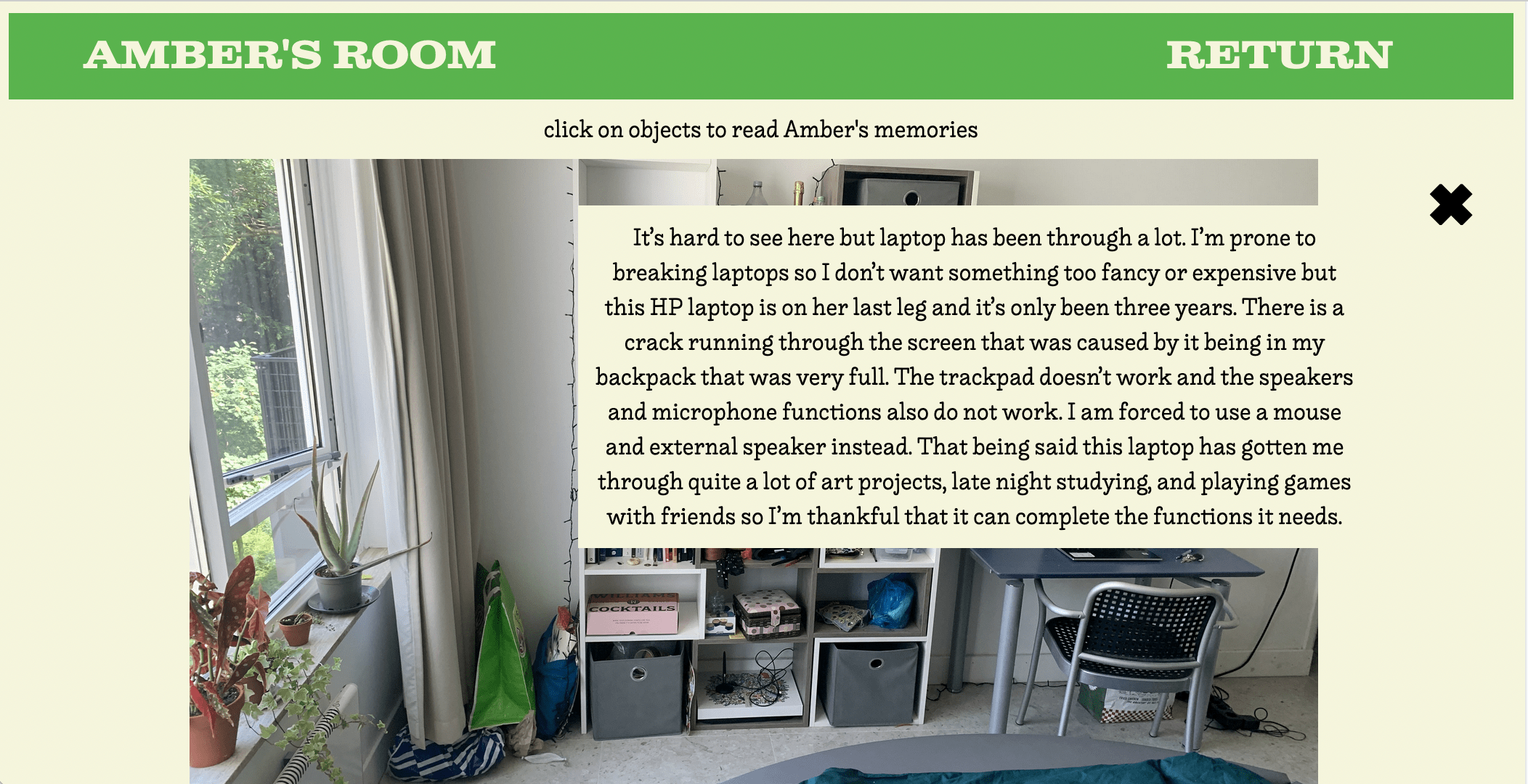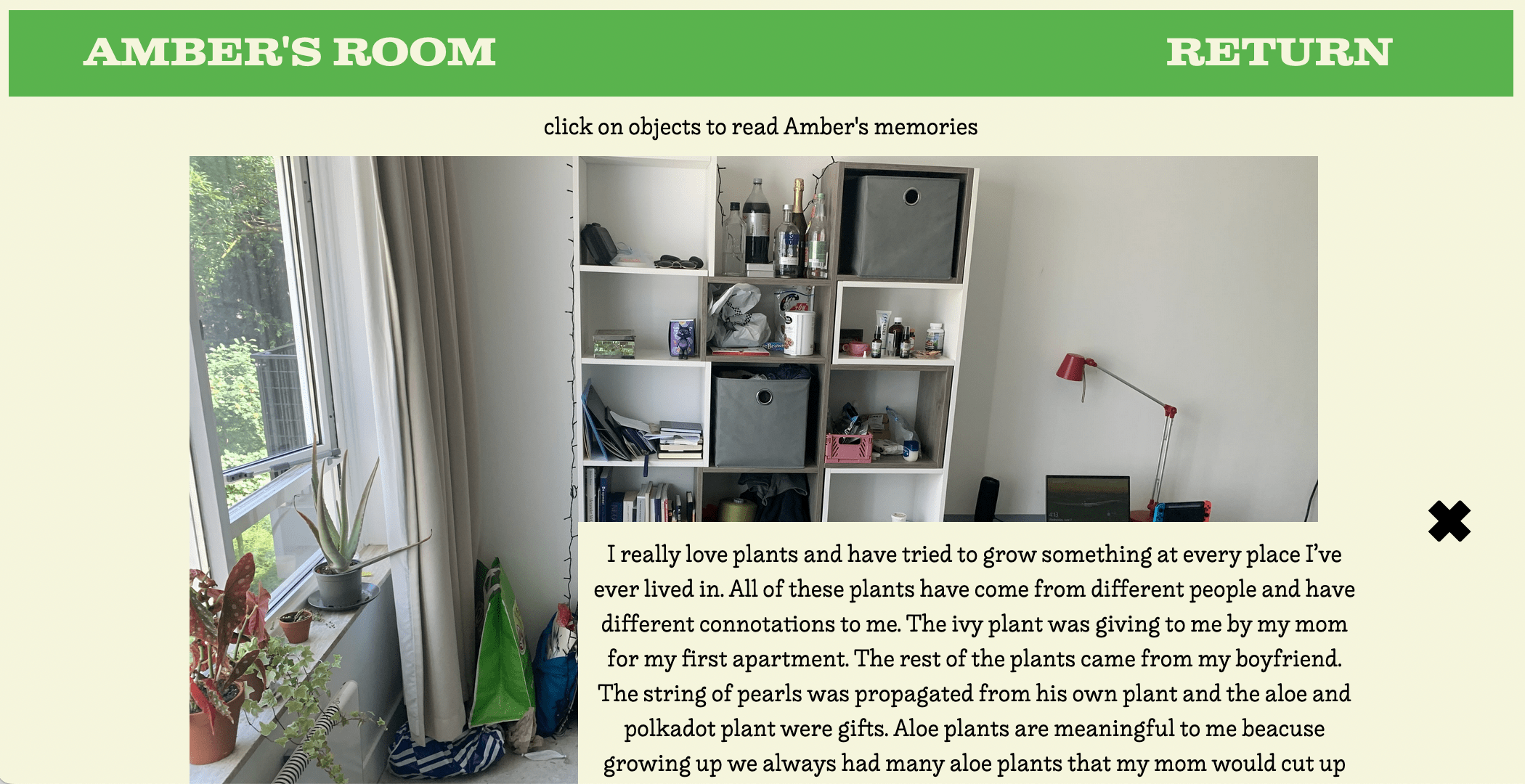Nami (N): Could you please introduce yourself?
Amber (A): Hello, my name is Amber and I'm the 2nd year Graphic Design student at Willem de Kooning Academy in Rotterdam. I'm from the US and I'm the international student here.
N: You are from the US! I think you told me before but my memory couldn't process it. But now I can remind of it. Sorry for thay. How come did you come to Willem de Kooning Academy from US?
A: I lived in Rotterdam for sometime because my mother worked in Breda, and then my family went back to the US. Then I just decided to came back to the Netherlands because I liked here and I wanted to study art here. I knew the Netherlands has many nice art academy and I love Rotterdam.
N: Was your application to WDKA your own choice? All art academies have different school missions. Were you aware of the differences?
A:Yes definitely, for instance, I know some people in KABK (Koninklijke Academie van Beeldende Kunsten, Den Haag). I knew there were differences of course. I liked the openess of WDKA because it fits to me very well.
N: It's nice that your decision was made by your research. So, you and I met in an Elective course HTML Zine Club in June 2023. How come did you register for my course?
A: In the very 1st semester in the Graphic Design major, we had to make a publication. As for my publication, I chose to make it as a website format. For that I was introduced to the web design and coding, and I really enjoyed it. I had had never done in before but it was very fun. I actually put your elective as my 1st option in the January module but I didn't get it. In the second Elective period, which is June, I finally got yours. I was happy with that.

N: Aha I didn't know this behind story at all. I'm grateful. Okay, from what you've just told me, I can imagine you already knew what my course was about. Was the description of the course clear?
A: I thought so. I imagined it's making a personal publication as a web project. I wasn't sure level of the coding that I was about to do though.
N: Yes, it's really about making a personal publication, and the medium for that is the web. Both aspects are equally valuable. I have a common question for all the students that I'm interviewing, and must ask you now... Can you share how you experienced the HTML & CSS hand coding in HTML Zine Club? In the course you were very much encouraged to write lines of codes by your hands, not relying on builders.
A: I think it's important to understand this practice, especially if you're starting it for the first time. After some time and effort to try to understand it, you'll actually know what your code is doing on your webpage. The builder is a kind of already a given thing to you, but when you have to type things by yourself, you have to think and have to plan ahead, and try out. I often draw my website on the paper because I find it comfortable to make something, after visualise it. Then I can think like: 'Okay, now I know where to put things.' Also, with the hand-coding, it's a lot about problem solving. Especially when you're new to the coding, things don't work as you want them to be. So you firstly try out and you need to be able to organise and analyse what you've done, what went righty or wrong, etc. Through that, you can be very experimental. Because sometimes you see some results that you didn't really intend to, but they can be also nice. And there's some organic-ness although it's the digital medium.
N: 'Organicness' is such a nice word. Probably that's one of what I enjoy the most from my artistic practice. When you try something out from basic functions and tweak them and so on, you get interesting outcomes. Which attracts me the most, because it gives me iterative inspirations. We only met for one week in summer, but I remember you were very independent to work for your zine. I still remember that you told me you had already explored the HTML & CSS before the course. That was perhaps the web publication project that you did in the first semester. In which way and which level did you have such technical instruction for the basic coing from the academy?
A: We had a very basic instruction and often it was like, giving us a website where we could learn what we wanted to do. Teachers can't cover everything because it's too broad.

N: True, it's very broad so I also had difficulties to sort out what aspects and knowledge in HTML & CSS I could share with you for that one week. But I think it was still good, because you had the full one week to commit yourself to learn them. Teaching Elective in the academy has become a very good and unique experience for me as well, because I worked for one or two weeks with a group of students in consistent flow and full time. In your case, were the general coding instructions from your major consistently given as well?
A: No, it wasn't consistent. I think the inputs were given a few times throughout two or three weeks at the school. I'm more a case that took a personal interest from the coding instruction in the beginning, and explored it further on my own. But it's not the same for others.
N: Yes, everyone has different pace to understand something and I think it'd be not easy for majority to be able to 'feel like exploring it further' unless the inputs were offered frequently or in depth.
A: Yes, I was able to build my webzine through time with enjoyment, because I was already very interested in it..
N: You were very spontaneous, indeed. Besides HTML & CSS, are there other digital tools or softwares that you like? If so, how did you learn or favourite digital tools/ software? How did you learn them?
A: We have been working with many Adobe programs. I'm knowledgeable in Photoshop but not After Effect... As for the AE, I had to try to figure out how to get what I want. At the moment I don't enjoy it that much.
N: You don't?
A: Nooo.. I guess it's just something that I have to practice more, but… yea I'm not familiar with it. But another thing we also did is Processing and I loved it. It was kind of a next step from the basic coding, and I liked what's generated upon the layers of my codes.

N: Yes, I also find Processing is a nice, interesting open source program. It was also kind of an entry point for me have insight to Javascript in a fun way. In contrast, I'm not a big fan of, for instance, Adobe Illustrator or Photoshop because I feel like there are not many things that I can do, despite there are still many possibilities. I guess I'm not really enjoying the process of working around the interface, rather than the application itself.
A: Same, definitely. They want you to use the programs in their way, which is one-way. That's why I enjoyed the coding because you can solve a problem in your own way, rather than having to understand only one way of doing and making it.

N: Yes, I see more freedom in that because there are many ways to solve issues from your codes. How was the process of finding the issue of your codes and solve them?
A: As a kid, I liked Math and Science, which are also a lot of problem solving. I think I've been exercising that skills, stepping back from what I face and looking around, thinking about what I can change and what I should do to fix. For instance, what I really found useful to learn from your instruction is that, you gave us a tip how to hide some of codes that we had written by using the slash marks. (e.g. <!— —!> or /* */ in CSS ). With that your codes can still stay there but it's not applied at the moment, but it can be a sort of history of what I've attempted and sometimes give me another clue…
N: Haha, that is nice to hear. Yes some people say using too much of the un-command lines of codes is not good because it can be messy, and especially when you co-work with others it could be confusing. I think if you're working with it alone for your own practice, it's just okay.
A: Yes, I like the function that you can take things out but there's still trace of it.
N: Listening to you, I think your interest in the coding has been naturally made, but job market requirement.
A: Hmm, it is something interesting for me and at the same time, it seems like a required skills that many places demand. I think it's just that Graphic Design lies on many different disciplines and coding is one of these. In the beginning at the school, I had a project producing a lot of works every week..I was very stuck because I was having a static idea how Graphic Design is to be. My method was very limited in a way. As a result I received a very critical feedback then realised Graphic Design can have diverse approaches. So yea, it seems like important skills in the market but I think it's not the only one that I'm interested in, but rather I'm curious how I could incorporate various skills and methods to my practice. My view has been broadened.
N: We have been talking about many practical sides so far. Now I'd like to ask you some aspects about the webzine. How did you understand and feel the concept of the webzine that I introduced in the course? I define it quite broad but this interpretation might bring some people ambiguity.
A: I looked at a lot of webzine references that you gave us. I also looked around how other people were making their publications in the classes. I understood that it is very much like your own diary or journal. It was a form that you put down your thoughts and feelings, which is a free form. The only limitation was that you put yourself there, not like taking some snippets of writings from outside. Since I already did a project about materiality before, for me a natural topic that I wanted to work with was 'my memories in object'.
N: How are you experiencing the activities given by the academy?
A: I came here with not a lot of knowledge and programming and all the Adobe programs were new. I had classmates who studied at Grafisch Leyceum and have been doing arts for many years. So at the first there's some gap as for the basic skills. In the Graphic Design department, there were not really classes about such tools. For instance, we had one small course about After Effect but it was hard because I had to take the instruction from the zero insight. But eventually it was alright because my peers helped me. As for other method, I was also able to help my friends. I think it's great. You should feel like you want to help others. So I think the academy is just like..what you make of it. You get out as much as you put in. The teachers are not just there, telling you what to do. It's more like, you bring them what you find and they guide you how to deepen or explore it further. In the academy, my view towards the Graphic Design has become broader. It's not just about making a poster or a website.
N: Yes, I remember you often help fellow students in my course as well. It's nice that you view your academic trajectory positive. Indeed, the self-learning with your peers is the best way to be inspired and inspire. But I guess this wouldn't be all positively accepted by all the students… I could be wrong, but I mean, it could be frustrating if you mostly rely on learning together with your classmates, although it's very much like a spontaneous learning. For instance, for some students who are very shy and find hard to proactively communicate with their classmates (especially in the beginning), it'd require them to be more social energy to do that, because firstly they need to find the group feeling.
A: Yes, I think for that reason there were some people who moved to another major department. It's also just a process of finding out what works for you and not.
N: What kind of designer or artist do you think you are?
A: Wow, that's hard. I came to the academy with an idea like I wanted to make poster for festivals or band albums. But now I'm more interested in making my own works. And like I said, I'm very interested in the web design and specifically generative design, which is like make things or patterns comes organically. Our teachers really pushed us to trying us loose our controls and that's been very interesting notion that I played with.
N: What do you mean by the 'lose control'? Can you please explain that a bit more?
A: When creating something, you may often have something you'd want to visualise in your head but sometimes it's nice to just let you go, opening your mind. We had one teacher letting us make one big painting, without making specific images by letting us not control ourselves too much. In the beginning we felt like the goal was a bit too abstract, thinking like “Ah yea, a bit silly..This is so Art academy thing”. But in the end I realised there's nice and natural organic element from the outcome. I likeed the reflecting moment of the process as well. I think that has made me resonate the generative design in a way. I'm still finding what kinds of designer or artist I want to be, but method-wise I'm very interested in this generative art and design, and would like to investigate it more.
N: Thank you for sharing what you think with me. You still have time enough to think about it, but yes what you told me sounds interesting. I didn't have you for long, but I can already feel the relevancy of it to you. It's also nice that you've found an interest in something so that boosted to explore further. It's impressive that you went through some reflection during the free-based activity then found some organic patterns.. To me it sounds that you looked into your mind through it. By the way, time-wise we've been talking for almost..70 minutes, which is too. I'm sorry that I couldn't efficiently lead the interview. I must wrap up this interview so that I can let you go. It was such a nice conversation with you. Thank you for your time and effort!
A: It was also nice to talk to you. Thank you.